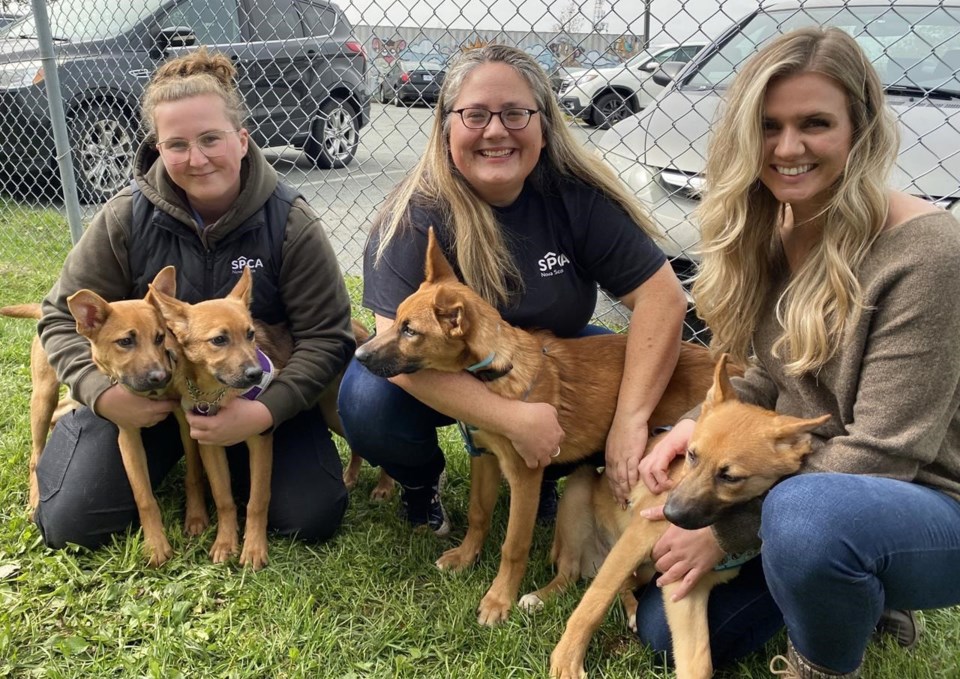HALIFAX — Sixteen dogs are about to have a new lease on life in Nova Scotia after being removed from an animal shelter as wildfires threatened Hay River in the Northwest Territories last month.
The 11 puppies and five adult dogs were flown into Halifax from Alberta on Tuesday and will eventually be put up for adoption.
A small group of the five- to six-month-old puppies played with balls and other chew toys in a small enclosure outside the offices of the Nova Scotia SPCA Wednesday. The animals appeared settled and content as they bounded around with each other and eagerly accepted petting from their handlers.
Sarah Lyon, provincial director of external relations for the Nova Scotia SPCA, said the decision to help made sense for her organization.
“We really thought about our own experience with wildfires in May and how lucky we were that we didn’t have to evacuate our own animals,” said Lyon. “We thought that if we had to (evacuate), we hoped somebody would have said yes to help us.”
The dogs had been living in Alberta in various foster homes and boarding facilities since an evacuation order was given in Hay River on Aug. 13. A volunteer from the Hay River Animal Shelter drove a number of the dogs to Alberta, while the remainder were flown into that province on a military transport plane.
With space limited at shelters across Western Canada due to wildfires, a call was made by Veterinarians Without Borders to the Nova Scotia SPCA, which agreed to accept the dogs.
Marieke Van Der Velden, Northern Canada program manager for the organization, said she wasn’t surprised by the Nova Scotia response.
“As animal welfare people, they understand the urgency of a situation like this,” she said.
Lyon said the dogs will receive medical treatment, including spaying or neutering, vaccinations and possible dental surgery before adoptions are sought in a couple of weeks.
“They need some time to decompress, they need some time to get some love and to get their footing on Nova Scotia soil,” said Lyon.
Although now thousands of kilometres from their birthplaces, Lyon said the dogs have been given names that honour where they came from.
One of the female dogs is named Nahanni, after the national park reserve in the Northwest Territories, while another is called Tundra. Two other dogs have been named Aurora and Borealis after the northern lights, while another animal bears the name Falco for the official bird of the territory, the gyrfalcon.
Ashley Wright, whose non-profit organization Wings of Rescue flies at-risk animals from overcrowded and high-kill shelters and disaster areas to new homes, accompanied the dogs on the flight to the East Coast. She said it went off without much fuss.
“They did great, they were really excited with a lot of puppy energy getting on the plane and then once we hit altitude they just fell asleep,” Wright said. “My hope is just that they find loving homes — people that will take them in and treat them like family.”
This report by The Canadian Press was first published Sept. 27, 2023.
Keith Doucette, The Canadian Press



